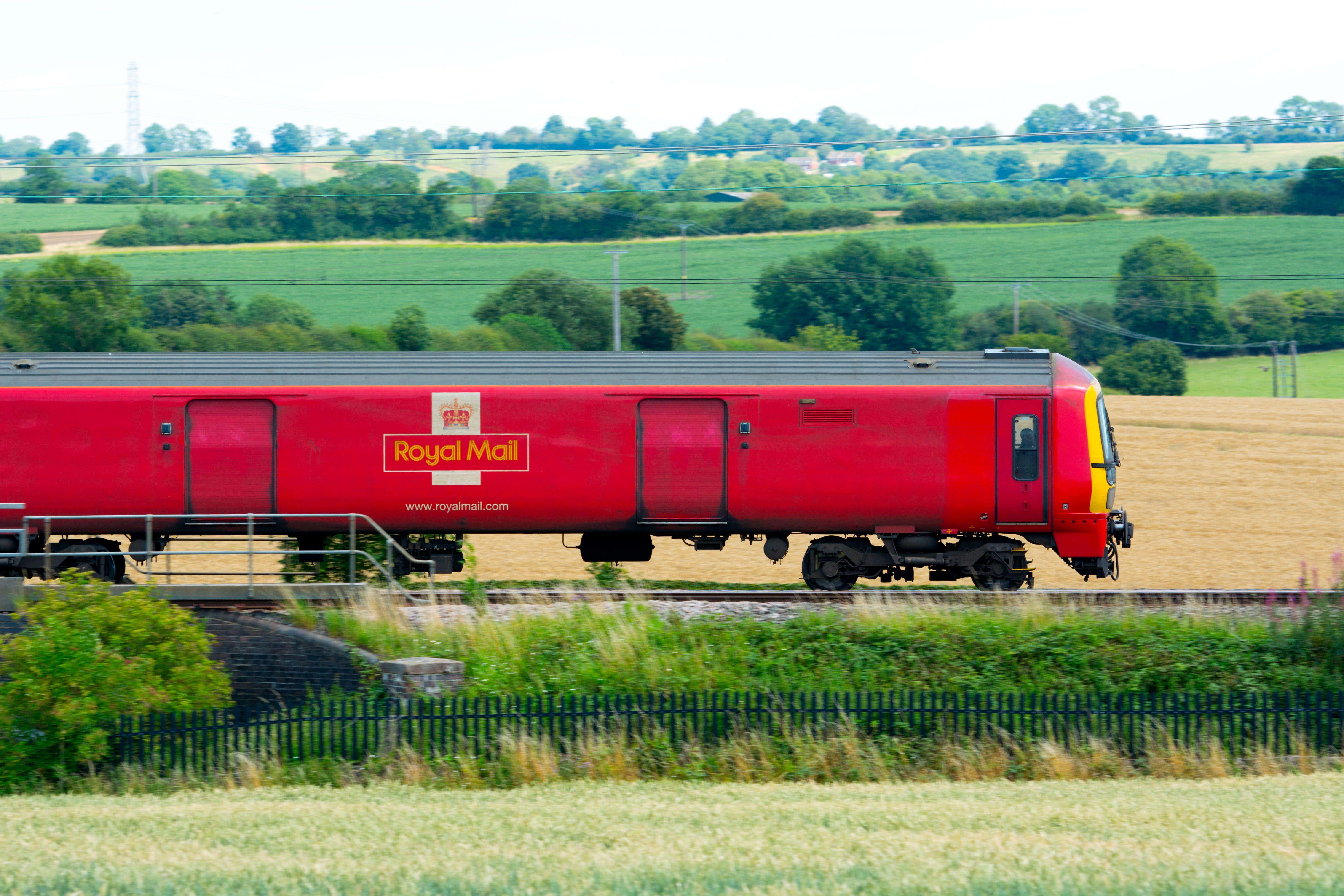Royal Mail to ditch train fleet as part of major shake-up to delivering post
The postal service said its almost 30-year-old freight trains are at the end of their operational lives.

Royal Mail will ditch its own fleet of trains as part of major changes to how it delivers post.
The postal service said on Wednesday that its almost 30-year-old freight trains are at the end of their operational lives and that it will not be buying new trains.
The firm will instead use a combination of commercial rail services, its existing road network and reduced air services to transport mail.
It comes after Royal Mail announced plans over the weekend to halve the number of domestic flights it runs in a bid to cut carbon emissions and improve efficiency.
Only 3% of mail is currently transported by rail and the additional driving workload will create more than 30 full-time driving jobs nationally, it added.
However, the decision to scrap the use of its own freight trains has raised questions on how the postal service will maintain demand by switching to road haulage while continuing to reduce its climate impact.
The move appears to be a change in direction from Royal Mail’s previous strategy to move away from planes and lorries in favour of the railways as part of net zero efforts.
In 2022 it was reported that then-chief executive Simon Thompson wanted to at least treble the postal volumes transported by train, and the firm opened its largest UK parcel facility at Daventry International Rail Freight Terminal late last year.
The postal service insisted the change will be “broadly neutral” in terms of its emissions, and remains committed to achieving net zero by 2040.
It claims to be the greenest delivery company in the UK, with the largest electric vehicle delivery fleet of around 5,000 and has deployed more than 10 million litres of hydrotreated vegetable oil biofuel since June last year.
To improve reliability, increase cost effectiveness and remain consistent with our environmental goals, over the coming months we will cease operating our own trains whilst continuing to use a mix of rail, road and air to transport mail to all corners of the UK
A spokesperson said: “Royal Mail will continue to use rail services to transport mail across the country however our own freight trains are at the end of their operational lives.
“The trains are almost 30 years old and it is increasingly difficult to secure parts for maintenance and the routes we need to meet our service requirements.
“To improve reliability, increase cost-effectiveness and remain consistent with our environmental goals, over the coming months we will cease operating our own trains whilst continuing to use a mix of rail, road and air to transport mail to all corners of the UK.”
The shake-up comes after Royal Mail owner International Distribution Services agreed to a £3.57 billion takeover offer from Czech billionaire Daniel Kretinsky’s EP Group in May.
Labour vowed to “robustly scrutinise” the takeover and give workers a “stronger voice’ in its election manifesto.
I wish to be honest and transparent with all of you – that we need to process and understand the implications of Royal Mail’s decision and, of course, we will be speaking to our Trade Unions to ensure we can communicate to colleagues as quickly as possible what any impact may be
Royal Mail confirmed that there are no job losses for employees as a result of the change and that staff will be redeployed to other roles but the decision may affect freight jobs.
The firm has given notice to DB Cargo UK, which operated and maintained Royal Mail’s fleet of Class 325 electric trains for the last decade, to end the relationship.
In a letter to staff seen by the PA news agency, DB Cargo’s chief executive Andrea Rossi called the decision a “blow” to the company and its colleagues.
“I wish to be honest and transparent with all of you – that we need to process and understand the implications of Royal Mail’s decision and, of course, we will be speaking to our Trade Unions to ensure we can communicate to colleagues as quickly as possible what any impact may be,” she wrote.
The letter said the decision was not made due to any concerns of DB Cargo’s performance, adding: “Royal Mail has made it clear that its decision is purely down to the increasing costs of electric traction (EC4T) and the high investment needs of its ageing 325 fleet.”
She added that DB Cargo UK will be seeking “urgent talks” with the new Labour Government and industry stakeholders to level the playing field between freight and road, adding that it has already been campaigning against the high charges for electricity supplied by Network rail to power trains.
A Department for Transport spokesperson said: “The economic and environmental potential of rail freight is significant, and the Government is committed to supporting its growth.
“Under our plans to deliver the biggest overhaul of the railways in a generation, Great British Railways will have a duty and targets to grow the use of freight on our railways.”
Bookmark popover
Removed from bookmarks